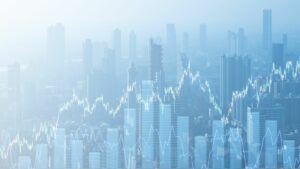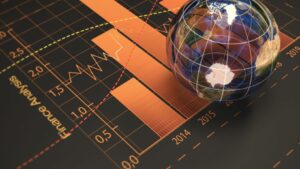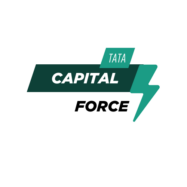Navigating the dynamic landscape of Iraq’s financial sector offers a fascinating glimpse into the resilience and transformation within this key Middle Eastern economy. Recent years have seen Iraq making significant strides in stabilizing and growing its financial framework, amidst ongoing challenges and global economic shifts. Investors and analysts alike keep a keen eye on Iraq’s fiscal policies, oil market dependency, and foreign investment influx, which are pivotal in shaping the nation’s economic future.
Iraq Financial News
Key Economic Indicators
 Iraq’s economic indicators offer critical insights into its financial health and trends. As of the latest data, Iraq’s GDP growth rate stands at approximately 3.9% for 2023, reflecting a modest rebound influenced by improved oil prices and production levels. Inflation rates have stabilized around 5.5%, demonstrating a controlled economic environment. The unemployment rate, however, remains a concern at around 14%, indicating ongoing challenges in job creation and labor market stability. Foreign reserves have shown a significant increase, securing financial stability and enabling future economic policies.
Iraq’s economic indicators offer critical insights into its financial health and trends. As of the latest data, Iraq’s GDP growth rate stands at approximately 3.9% for 2023, reflecting a modest rebound influenced by improved oil prices and production levels. Inflation rates have stabilized around 5.5%, demonstrating a controlled economic environment. The unemployment rate, however, remains a concern at around 14%, indicating ongoing challenges in job creation and labor market stability. Foreign reserves have shown a significant increase, securing financial stability and enabling future economic policies.
Recent Fiscal Policies
Iraq has implemented several fiscal measures aimed at enhancing economic stability and growth. The government has increased its investment in infrastructure projects, boosting both employment and overall economic activity. Tax reforms, introduced to diversify revenue streams, have targeted sectors beyond oil, such as digital services and property. Additionally, Iraq’s Central Bank has adjusted interest rates to curb inflation and encourage borrowing, thereby supporting business expansion and consumer spending. These strategic initiatives signal a deliberate shift towards reducing Iraq’s oil dependency and fostering a more diversified economy.
Major Sectors Influencing Iraq’s Economy
 Iraq’s economy experiences influences from several critical sectors that dictate its financial stability and growth prospects.
Iraq’s economy experiences influences from several critical sectors that dictate its financial stability and growth prospects.
- Oil and Gas: Dominating the economic landscape, this sector contributes approximately 45% to GDP and accounts for over 90% of government revenue. As global oil prices fluctuate, so does Iraq’s economic stability.
- Agriculture: Although smaller in scale compared to oil, agriculture remains integral, employing about one-third of the population. It provides essential sustenance and a baseline economic activity in rural areas.
- Services: This sector, including banking, retail, and telecommunications, has seen growth due to increased foreign investment and improved security conditions. Enhanced services contribute to diversifying Iraq’s economy beyond oil reliance.
- Construction and Infrastructure: Vital for economic recovery, this sector benefits from public and private investments aimed at rebuilding war-impacted regions and fostering urban development.
Impact of Global Trends on Iraq Financial News
Global trends significantly affect Iraq’s financial news, particularly in the realms of oil prices, market volatility, and international trade regulations. As Iraq relies heavily on oil exports, fluctuations in global oil prices directly influence its financial stability. For instance, a rise in oil prices generally boosts the country’s revenues, enhancing economic forecasts in financial news reports.
Additionally, global market volatility impacts investor confidence, which can either attract or deter foreign investors. Iraq’s economic sectors like construction and services, vital for its financial growth, react to these investor sentiments.
Key Players in the Iraq Financial Market
 Central to Iraq’s financial market, key institutions and businesses significantly influence economic trends and stability. The Central Bank of Iraq assumes a pivotal role, steering national fiscal policies and regulating monetary stability. Major banks, such as the Trade Bank of Iraq and Rafidain Bank, form the backbone of Iraq’s banking sector, facilitating enterprise financing and individual banking needs.
Central to Iraq’s financial market, key institutions and businesses significantly influence economic trends and stability. The Central Bank of Iraq assumes a pivotal role, steering national fiscal policies and regulating monetary stability. Major banks, such as the Trade Bank of Iraq and Rafidain Bank, form the backbone of Iraq’s banking sector, facilitating enterprise financing and individual banking needs.
Distinguished companies in sectors like oil, construction, and telecommunications, such as the South Oil Company and Zain Iraq, contribute to both fiscal stability and growth. These entities interact within a framework shaped by global economic conditions and internal policy decisions, directly impacting Iraq financial news and the market’s direction.
Challenges Facing Iraq’s Economy
Transitioning from the roles of key financial players in Iraq, the economy faces several pressing challenges. Primarily, the dependence on oil revenues leaves the economy vulnerable to global oil price fluctuations. If oil prices decline, it impacts government revenue and hampers economic planning. Furthermore, infrastructure challenges persist, hindering effective distribution and utilization of funds for development projects across sectors like transportation and healthcare. Corruption remains a significant issue, detracting from the overall investment climate and complicating efforts towards economic diversification. Lastly, high unemployment rates, particularly among the youth, stress the need for robust employment opportunities outside the oil sector, emphasizing the urgency of developing other industries to stabilize Iraq’s financial future.



